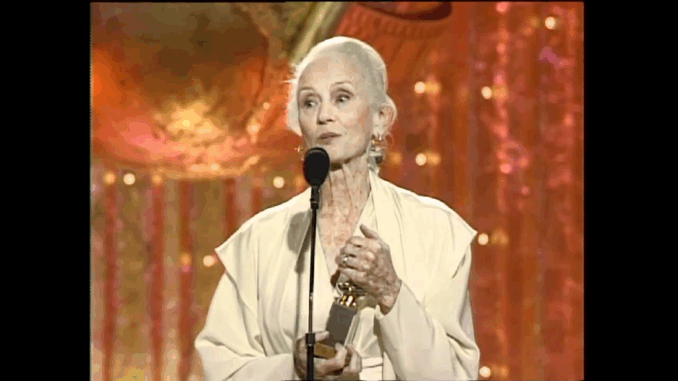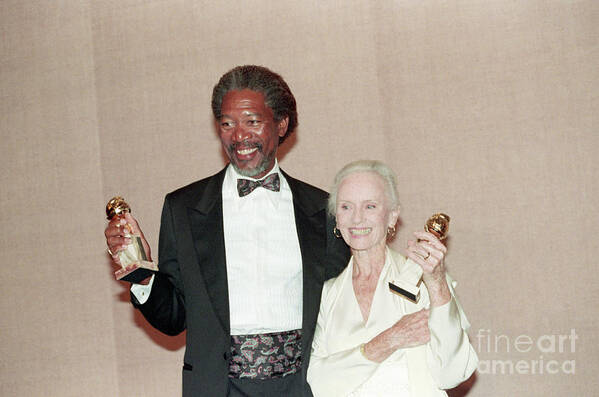
In Fried Green Tomatoes, the narrative moves fluidly between two timelines: one in the past, centered on the lives of Idgie and Ruth, and one in the present, following Evelyn Couch, a woman at a crossroads in her own life. The thread that binds these stories is a charming, elderly woman named Ninny Threadgoode. Seated in a nursing home with a mischievous twinkle in her eye, Ninny’s storytelling does more than entertain — it transforms.
This article explores the crucial role Ninny plays in the film, not just as a narrator, but as a conduit for legacy, empowerment, and the reclamation of female voice. Her oral history becomes a radical act of preservation — of memory, of identity, and of womanhood.
A Voice That Breaks Through Silence
At first, Evelyn visits the nursing home out of obligation, accompanying her husband on his visits to his mother. She’s a polite Southern woman, stifled by societal expectations, ageism, and a culture that has trained her to be invisible. Then she meets Ninny.
Ninny’s stories — lively, funny, sometimes scandalous — capture Evelyn’s imagination. They’re full of fierce women, secret loves, and unexpected justice. With each visit, Evelyn comes alive a little more. The stories don’t just pass the time; they pass wisdom, strength, and possibility from one generation to another.
In this way, Ninny’s oral history becomes a healing force. It teaches Evelyn that her life, too, can change — that she can rebel, claim space, and begin again.
Oral Tradition as Female Power
In many cultures, especially in the American South, women have preserved family and community history through spoken word. These stories are rarely written down, yet they carry generations of insight. Ninny continues this tradition with wit and intentionality, reshaping her listener as much as her narrative.
Her role is both folklorist and feminist. The world she recalls is not sanitized or simplified — it’s complex, emotional, and deeply human. In telling the story of Idgie and Ruth, she elevates female agency, resilience, and compassion. And she doesn’t just tell what happened — she makes us feel why it mattered.
Importantly, Ninny’s storytelling isn’t passive. She chooses her moments, carefully builds suspense, and controls the tempo of revelation. She commands attention — something older women in media are rarely allowed to do. Through her stories, she becomes the most powerful character in the room.
Shaping Identity Across Generations

Ninny’s stories are not only personal; they are transformative. As Evelyn listens, she begins to question her own life. The docile, people-pleasing housewife starts to rebel — trying assertive behavior, speaking up for herself, and even indulging in a few fantasies of destruction (hello, “Towanda!”).
What’s powerful here is that Ninny never tells Evelyn what to do. She simply shows her a different way of being through the stories of others — stories of women who refused to settle, who found strength in one another, and who navigated hardship with wit and fire.
In this way, the oral tradition becomes a model for self-invention. Ninny gives Evelyn not advice, but tools: new language, new heroines, and new definitions of success.
Unreliable Narrator or Magical Realist?
There’s a lingering question throughout the film: is Ninny really who she claims to be? Is she just a friend of the Threadgoode family, or could she, in fact, be Idgie herself — older, changed, but still burning bright?
The film leaves this ambiguity intact, and in doing so, blurs the boundary between storyteller and story. Whether or not Ninny is Idgie, she has become her in spirit. She embodies the courage, mischief, and strength of the woman she describes.
This ambiguity also speaks to a deeper truth: stories shape us. We carry the lives of others in our hearts, and over time, they become part of our own narrative. Ninny’s identity matters less than the effect she has — on Evelyn, and on us.
The Feminist Value of Remembering
Too often, women’s histories are dismissed as domestic, anecdotal, or sentimental. Fried Green Tomatoes counters this notion by showing how memory itself can be a feminist act. Ninny remembers what official history forgets — the lives of women, their quiet rebellions, their enduring friendships.
In preserving the story of Idgie and Ruth, she refuses to let them be erased. She keeps their love, their courage, and their café alive in the face of time, death, and societal norms. Her storytelling is a defiance of invisibility — for them, and for herself.
This preservation is especially radical given Ninny’s age. In a culture that often treats elderly women as irrelevant, Fried Green Tomatoes celebrates her as the keeper of truth, the bearer of legacy, and the engine of change.
Conclusion: The Storyteller as Catalyst
Ninny Threadgoode is far more than a kindly old woman in a nursing home. She is a revolutionary figure cloaked in gentleness. Through her stories, she reclaims a hidden history, inspires a future, and challenges a culture that silences women once they are no longer young.
Her voice echoes across timelines, bridging the past and present, weaving a tale of love, resistance, and reinvention. In doing so, she reminds us that every woman — no matter her age or circumstances — has a story worth telling, and that telling it may be the most powerful act of all.
